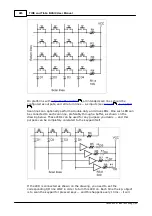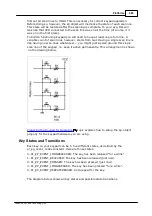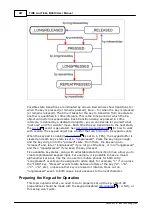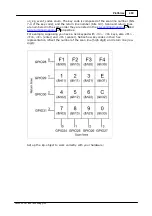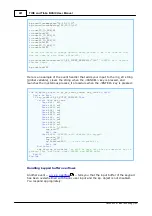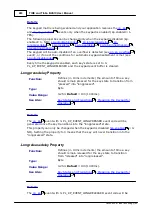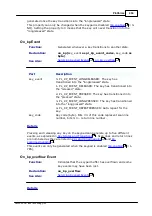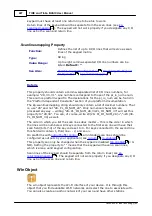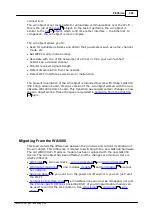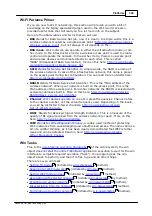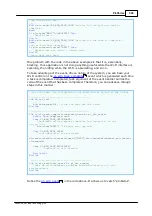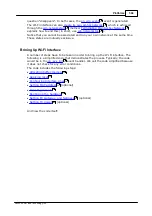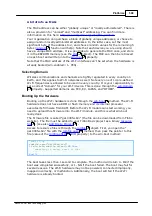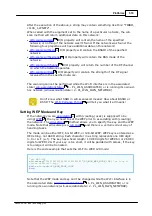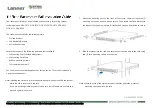
495
TIDE and Tibbo BASIC User Manual
©2000-2008 Tibbo Technology Inc.
The keypad buffer stores up to 16 keypad events. Each such event causes the
generation. If your application is slow to process the keypad events, it is
possible to overflow the keypad by pressing the keys in rapid succession. Once the
buffer overflows, the keypad is disabled automatically (
is set to 0-
NO). You can re-enable the keypad by setting kp.enabled= 1- YES (this will clear
the keypad buffer).
.Pressdelay Property
Function:
Defines (in 10ms increments) the amount of time a key
should remain pressed for the key state to transition from
"released" into "pressed".
Type:
Byte
Value Range:
0-254. Default= 3 (30ms).
See Also:
Details
event with 2- PL_KP_EVENT_PRESSED event code will be generated
once the key transitions into the "pressed" state.
This property can only be changed when the keypad is disabled (
= 0-
NO). Setting the property to 0 means that the key will never transition into the
"pressed" state.
.Releasedelay Property
Function:
Defines (in 10ms increments) the amount of time a key
should remain released for the key state to transition
from "pressed" or "longpressed" into "released".
Type:
Byte
Value Range:
0-254. Default= 3 (30ms).
See Also:
Details
event with 1- PL_KP_EVENT_RELEASED event code will be generated
once the key transitions into the "released" state.
This property can only be changed when the keypad is disabled (
= 0-
NO). Setting the property to 0 means that the key will never transition into the
"released" state.
494
492
486
487
494
492
486
487
494
492





